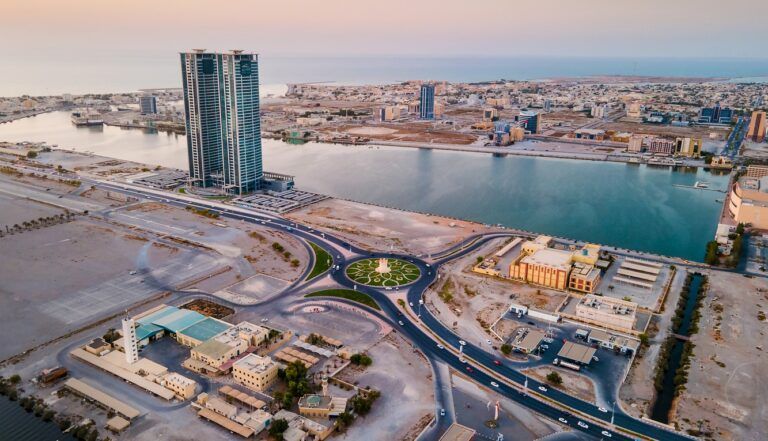Kapsch TrafficCom has successfully installed an end-to-end truck tolling system in the Emirate of Ras Al Khaimah, UAE, which is set to process around one million transactions per year and enable better traffic flow and faster delivery of goods transported by road.
The multi-lane free-flow (MLFF) system replaced the previous plaza-based tolling system. This allows trucks to access the RAK highway network without having to wait at tool booths. The system is currently operated by the Public Services Department of the Emirate, whose system operators were trained by Kapsch TrafficCom.
H.E Eng Khaled Fadel Al Ali, the director general of public services department, said, “We are delighted to collaborate with Kapsch TrafficCom to increase the efficiency of the use of advanced transit gate systems, which will contribute to the adoption of innovative, sustainable and smart mobility solutions that enable and allow trucks to access the highway network without having to wait at gate kiosks, and allow for better traffic flow and faster delivery of goods transported by road.
“This partnership also serves both sides to enhance the performance of the emirate in the fields of transportation and movement to achieve the directions and aspirations of our wise government to make the UAE one of the best countries in the world,” he added.
The tolling system consists of a number of gantries, the relevant sensors, cameras and other hardware elements to identify trucks without forcing them to stop or slow down and the required software to process the data and payments. The system also interfaces to numerous other traffic systems operated by the department as well as a mobile app for drivers to manage their trips and payments individually and easily and a web portal for reporting.
Fakhar Munir, area sales manager, Middle East at Kapsch TrafficCom, said, “Ras Al Khaimah takes a leap forward in transportation efficiency with the upgraded tolling solution for trucks, promising smoother traffic flow and enhanced logistics. This represents a groundbreaking move by the authorities to elevate the region’s connectivity.”
The system stands out in particular because it is faced with the extreme weather conditions of the region, where temperatures of more than 40 degrees Celsius and heavy sandstorms are daily occurrences. Despite these difficult circumstances, the system has performed reliably and currently processes about one million transactions per year.





